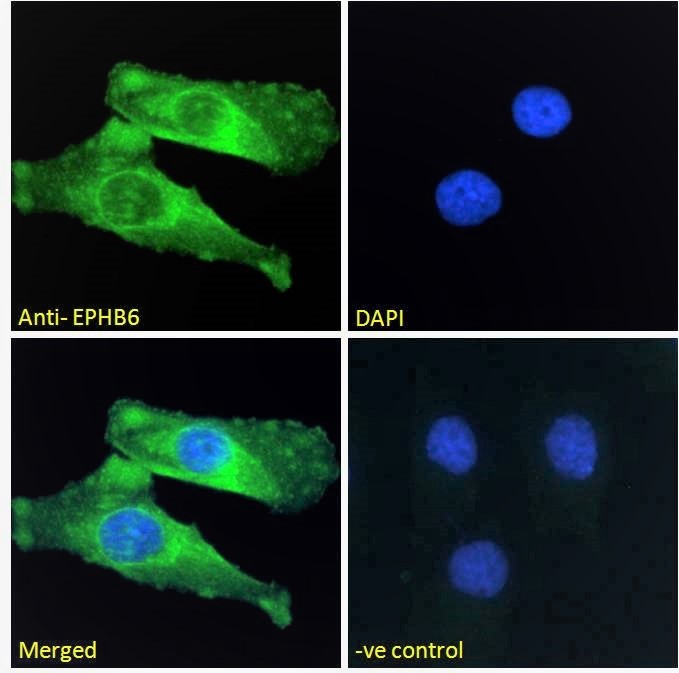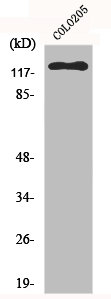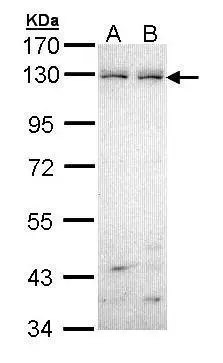![IHC-P analysis of human bladder carcinoma (left) and return carcinoma (right) tissue using GTX83219 EphB6 antibody [8E7H12]. IHC-P analysis of human bladder carcinoma (left) and return carcinoma (right) tissue using GTX83219 EphB6 antibody [8E7H12].](https://www.genetex.com/upload/website/prouct_img/normal/GTX83219/GTX83219_20170912_IHC-P_w_23061322_221.webp)
IHC-P analysis of human bladder carcinoma (left) and return carcinoma (right) tissue using GTX83219 EphB6 antibody [8E7H12].
EphB6 antibody [8E7H12]
GTX83219
ApplicationsWestern Blot, ELISA, ImmunoHistoChemistry, ImmunoHistoChemistry Paraffin
Product group Antibodies
ReactivityHuman, Mouse
TargetEPHB6
Overview
- SupplierGeneTex
- Product NameEphB6 antibody [8E7H12]
- Delivery Days Customer7
- Application Supplier NoteWB: 1/500 - 1/2000. IHC-P: 1/200 - 1/1000. ELISA: 1/10000. *Optimal dilutions/concentrations should be determined by the researcher.Not tested in other applications.
- ApplicationsWestern Blot, ELISA, ImmunoHistoChemistry, ImmunoHistoChemistry Paraffin
- CertificationResearch Use Only
- ClonalityMonoclonal
- Clone ID8E7H12
- ConjugateUnconjugated
- Gene ID2051
- Target nameEPHB6
- Target descriptionEPH receptor B6
- Target synonymsHEP, ephrin type-B receptor 6, human kinase-defective Eph-family receptor protein, tyrosine-protein kinase-defective receptor EPH-6
- HostMouse
- IsotypeIgG1
- Protein IDO15197
- Protein NameEphrin type-B receptor 6
- Scientific DescriptionThis gene encodes a member of a family of transmembrane proteins that function as receptors for ephrin-B family proteins. Unlike other members of this family, the encoded protein does not contain a functional kinase domain. Activity of this protein can influence cell adhesion and migration. Expression of this gene is downregulated during tumor progression, suggesting that the protein may suppress tumor invasion and metastasis. Alternative splicing results in multiple transcript variants. [provided by RefSeq, Jul 2013]
- ReactivityHuman, Mouse
- Storage Instruction-20°C or -80°C,2°C to 8°C
- UNSPSC41116161

![WB analysis of Jurkat (1) and NIH3T3 (2) cell lysate using GTX83219 EphB6 antibody [8E7H12]. WB analysis of Jurkat (1) and NIH3T3 (2) cell lysate using GTX83219 EphB6 antibody [8E7H12].](https://www.genetex.com/upload/website/prouct_img/normal/GTX83219/GTX83219_20170912_WB_w_23061322_276.webp)






![IHC-P analysis of human lymph node (left) and brain (right) using GTX83050 EphB6 antibody [2A6B9].](https://www.genetex.com/upload/website/prouct_img/normal/GTX83050/GTX83050_20170912_IHC-P_w_23061322_140.webp)
